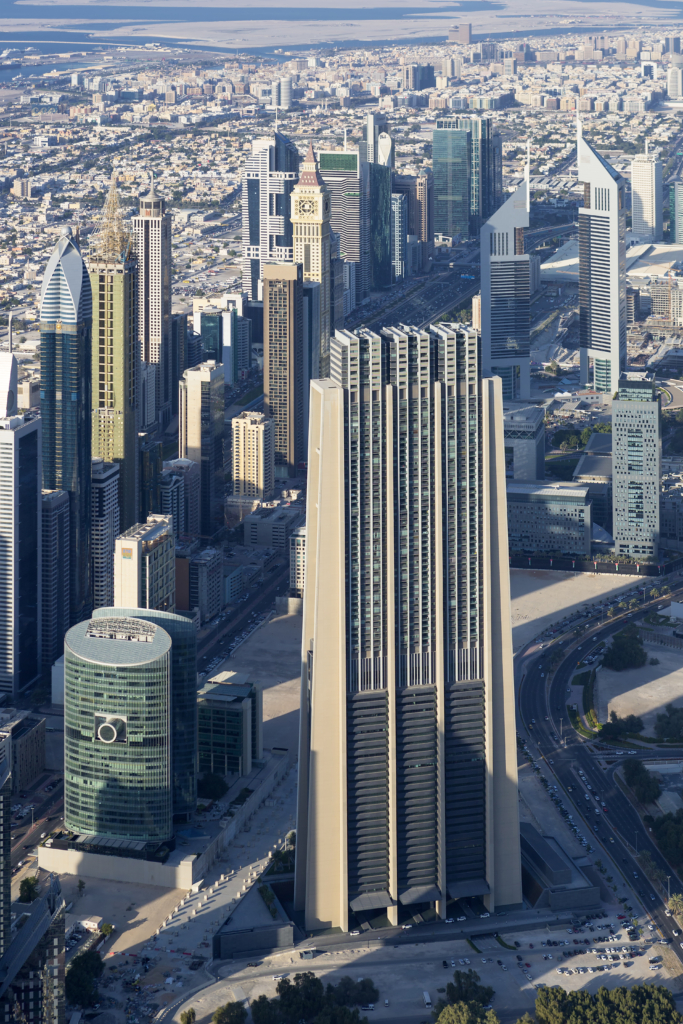Off-plan properties in Dubai have rapidly gained popularity among real estate investors, first-time buyers, and even seasoned property enthusiasts. As one of the most dynamic and fast-growing real estate markets in the world, Dubai’s real estate market offers a wealth of opportunities for those looking to invest in the city’s future. Off-plan properties, which are sold before they are constructed, have become an attractive option for people who want to secure a property at a competitive price and capitalize on future appreciation.
But what exactly are off-plan properties, and why have they become a key focus for investors? Off-plan properties refer to real estate developments that are sold to buyers prior to the completion of construction. These properties are often marketed based on detailed architectural plans, layouts, and conceptual designs, allowing buyers to secure their investments at an early stage—sometimes even years before the property is ready for occupancy. This differs from ready-to-move-in properties, where buyers can immediately take possession of the property upon purchase.
There are several significant advantages to purchasing off-plan properties for sale in Dubai, but they come with their own set of risks and considerations. For instance, off-plan properties are typically more affordable than completed properties in the same area, providing buyers with an opportunity to enter the market at a lower price point. Moreover, off-plan properties allow buyers to personalize their living spaces, such as choosing finishes, materials, and interior designs, which might not be available with ready properties. This level of customization can be especially appealing for homeowners looking for a tailored living experience.
The appeal of purchasing off-plan in Dubai lies in the potential for substantial capital appreciation. Since many of these properties are located in fast-developing areas or emerging districts that are undergoing significant growth and infrastructure projects, buyers can see a significant increase in the property’s value by the time it is completed. For investors looking to build a portfolio of properties with high return on investment (ROI), off-plan properties in sought-after locations like Dubai Marina, Downtown Dubai, and Business Bay offer long-term value.
However, while the benefits are numerous, it’s important to acknowledge that purchasing off-plan properties is not without its risks. These properties can be affected by construction delays, market fluctuations, and unforeseen legal or financial hurdles. It’s essential for buyers to be aware of these potential challenges and take steps to mitigate risks when buying off-plan properties in Dubai.
In this comprehensive guide, we will walk you through everything you need to know about off-plan properties in Dubai, from understanding the buying process and financing options to the key risks involved and the best locations for investing. By the end of this blog, you’ll have a clear understanding of how off-plan properties work, why they could be a great investment for you, and how to navigate the potential pitfalls to ensure a successful purchase.
What Are Off-Plan Properties in Dubai?
Off-plan properties are real estate investments sold before the construction is completed. Typically, they are marketed based on blueprints, architectural designs, and project plans. When buying an off-plan property in Dubai, you’re essentially investing in a future vision of a property that exists only on paper or in the early stages of development.
Definition and Concept of Off-Plan Properties
- Early-Stage Development: Off-plan properties are typically in the pre-construction or mid-construction phase. This means they may be in the design stage, or some floors may already be built while others are still under development.
- Not Ready for Occupancy: Unlike ready-to-move-in properties, off-plan properties aren’t yet fully constructed or livable. Buyers commit to the property based on plans, projections, and digital renderings.
Capital Appreciation Potential
- Price Advantage: Off-plan properties are often priced lower than completed properties in the same area, making them an attractive option for buyers looking for affordability.
- Future Value Growth: As construction progresses and the property is completed, its value often appreciates significantly. This is particularly true in areas with high growth potential, where infrastructure developments and business investments drive up demand and property prices.
- High Potential in Developing Areas: Off-plan properties in emerging neighborhoods like Dubai Creek Harbour, Jumeirah Village Circle, and Dubai Marina can see higher appreciation, making early investment financially advantageous.
Buying at an Early Stage
- Early Entry Advantage: One of the major benefits of off-plan properties is the opportunity to buy into a new project early, often at a lower price, before construction progresses and prices increase.
- Long-Term Gains: For investors, entering at an early stage can yield higher profits once the property is completed, especially if the surrounding area sees rapid development or urbanization.
Developer Reputation and Marketing
- Developer’s Track Record: The credibility of the developer is vital when purchasing off-plan. Developers with a strong track record of delivering projects on time and within budget are seen as more trustworthy.
- Marketing Materials: Developers often market off-plan properties using brochures, digital renderings, and videos to showcase the property’s potential. These materials help buyers visualize the property and assess its appeal.
- Location and Long-Term Plans: A property’s location and the developer’s plans for future developments in the surrounding area are key factors that can influence the property’s long-term value. Projects near upcoming infrastructure, transportation hubs, or new business districts tend to appreciate more.
Financial Benefits of Off-Plan Properties
- Lower Initial Price: Off-plan properties are often priced lower than completed homes, allowing buyers to enter the market at a more affordable price point.
- Potential for Future Growth: With Dubai’s growing population, foreign investment, and ongoing infrastructure development, the property’s value is likely to increase once construction is finished, providing buyers with an attractive return on investment.
- Incentives: Developers may offer incentives, such as early-bird discounts or flexible payment plans, to attract early buyers and make the investment even more appealing.
Risks Involved in Off-Plan Investments
- Uncertainty and Delays: Investing in off-plan properties means betting on the future. Construction delays are a common risk, as the project may face unexpected challenges, leading to delays in delivery.
- Economic Fluctuations: Economic downturns or market shifts can impact the value of off-plan properties. It’s important to understand the real estate market trends and economic outlook to assess the potential risks.
- Developer Issues: Unforeseen problems during development—such as financial difficulties or poor construction practices—could impact the completion and quality of the property.
Due Diligence and Legal Protections
- Choose Reputable Developers: It’s essential to work with developers who have a solid reputation and have successfully completed previous projects.
- Understanding Timelines and Payment Plans: Before committing to an off-plan purchase, ensure you fully understand the construction timelines, payment structures, and any potential penalties for delays. Be sure the Sales and Purchase Agreement (SPA) outlines these details clearly.
- Legal Safeguards: Ensure the project is RERA-registered and that funds are secured in an escrow account. These legal protections provide transparency and ensure your investment is safe.
Summary: Why Consider Off-Plan Properties in Dubai?
- Investment Opportunity: Off-plan properties offer the potential for capital appreciation and lower initial costs compared to completed properties.
- Early Entry Advantage: Buying early allows you to lock in a property at a lower price before its value increases due to ongoing development in the surrounding area.
- Careful Evaluation Required: While the opportunity for long-term gains is significant, it’s crucial to perform thorough due diligence, select a reputable developer, and understand the risks involved, including construction delays, market fluctuations, and financing challenges.

Why Should You Consider Off-Plan Properties in Dubai?
Investing in off-plan properties in Dubai offers several compelling advantages that attract both first-time homebuyers and seasoned investors. If you’re considering entering Dubai’s real estate market, here are the key benefits of purchasing off-plan properties:
Higher Return on Investment (ROI) Potential
One of the primary reasons buyers are attracted to off-plan properties is the opportunity for a higher return on investment. Due to Dubai’s real estate market appreciating over time, off-plan properties often see substantial value increases before they are completed. This growth is especially noticeable in emerging neighborhoods or areas undergoing large-scale development. For example, properties in locations like Dubai Creek Harbour, Dubai Hills Estate, or newly developed parts of Dubai Marina can increase in value by 20-30% or more by the time construction finishes. By investing early, you secure a property at a lower price, benefiting from market growth before the property is even complete.
Affordable Pricing Compared to Completed Properties
Another major benefit of purchasing off-plan is the lower price compared to completed properties in the same area. Since off-plan properties are sold before they are built, they are often priced at a discounted rate. This means buyers can enter prime real estate locations in Dubai at a more affordable price point. Whether you’re looking to invest in luxury properties Dubai or more moderately priced homes, the opportunity to buy into areas with a high potential for future growth without the steep premiums that come with completed homes makes off-plan properties an attractive option.
Significant Capital Appreciation
Over time, off-plan properties have the potential for significant capital appreciation, especially in high-demand locations. As Dubai’s real estate market continues to grow and the city develops more infrastructure, the value of properties located in prime areas—such as Downtown Dubai, Business Bay, and waterfront developments—tends to increase. This means by the time your off-plan property is ready, its market value could exceed the initial purchase price, providing excellent returns on your investment.
Opportunity for Customization
Purchasing an off-plan property often comes with the added benefit of personalization. Many developers offer buyers the opportunity to select floor plans, finishes, design elements, and interior layouts that align with their preferences. This level of customization ensures that the final property feels tailored to your taste and needs, offering more flexibility than a ready-to-move-in home where customization options may be limited or unavailable.
Flexible Payment Plans
One of the standout benefits of investing in off-plan properties is the flexible payment plans often offered by developers. Rather than needing to pay the full price upfront, many developers provide buyers with the option to pay a deposit followed by installments spread across the construction phase. This allows investors and homeowners to manage their financial commitments more easily. Payments are typically tied to construction milestones, with amounts due when certain phases of the project are completed, such as the foundation, building structure, or final finishes. The ability to pay over time makes off-plan purchases more accessible to a wider range of buyers.
Opportunity to Buy in Growing Neighborhoods
Dubai is constantly evolving, with new communities, business hubs, and infrastructure projects being developed. Buying an off-plan property gives you the chance to secure a property in emerging neighborhoods that are expected to see significant growth in the coming years. Developments like Dubai South, Al Furjan, and Meydan are rapidly expanding, and buying off-plan gives you the opportunity to enter these areas at an early stage, potentially profiting from future gentrification and demand.
Availability of Prime Locations
In many cases, off-plan developments are located in highly desirable areas that are either newly developed or undergoing major enhancements. Buyers who purchase off-plan properties in prime locations often get the benefit of location-driven appreciation, especially in areas that are part of Dubai’s long-term master plans. This might include developments near world-class amenities, business districts, or well-connected transportation hubs. As the surrounding area develops, these properties tend to gain significant value over time.
Access to Exclusive Offers and Early-Bird Discounts
Developers of off-plan projects often offer early-bird incentives to attract initial buyers, which can include discounts, free upgrades, or special financing options. Purchasing early in the development phase can unlock these exclusive deals, which are often not available later on as the project nears completion and demand increases. These incentives make off-plan properties even more attractive for those looking to maximize their investment.
In Summary: Why Choose Off-Plan Properties?
Off-plan properties in Dubai present a unique opportunity for buyers and investors to secure a property at a lower cost with significant potential for future returns. From the ability to customize the property and the flexible payment plans, to the lower initial costs and potential for substantial capital appreciation, these properties offer numerous benefits that are hard to overlook. Moreover, with Dubai’s booming real estate market and constant growth, now might be the perfect time to invest in off-plan developments in the city’s most coveted neighborhoods.

How Do Off-Plan Projects Work in Dubai?
Purchasing off-plan properties in Dubai is an exciting opportunity, but it is essential to understand the process thoroughly to ensure that everything runs smoothly. The procedure can be straightforward, but there are key factors that buyers must pay attention to in order to protect their investment and avoid complications. Here’s a step-by-step breakdown of how the process typically works:
Choose a Reputable Developer
- Reputation is Key: The first and most crucial step is to select a trustworthy and well-established property developer in Dubai. The success of your off-plan purchase largely depends on the reputation and track record of the developer.
- Developer’s Track Record: Choose developers who have completed similar projects on time and delivered properties that meet quality standards. Established developers are more likely to stick to deadlines and maintain quality throughout construction.
- RERA Registration: Ensure the developer is registered with the Real Estate Regulatory Agency (RERA). RERA registration is essential as it guarantees that the developer follows all legal and regulatory requirements for property sales in Dubai. It also offers additional protection for buyers in the event of a dispute.
Review and Sign the Sales and Purchase Agreement
- Sales and Purchase Agreement (SPA): Once you’ve selected a property and a developer, you’ll need to sign a Sales and Purchase Agreement (SPA). This legally binding contract will outline the terms of your purchase, including:
- Property details: Specifications, layout, and floor plan.
- Payment schedule: The payment structure and milestones tied to the construction process.
- Completion timeline: An estimated timeline for when construction will be completed and when the property will be handed over.
- Developer’s responsibilities: Clarifies what the developer is responsible for (construction, quality of work, delivery date, etc.).
- Clarify Terms: Make sure to carefully review the terms in the SPA before signing. If you’re unsure about any clauses, it’s wise to seek legal advice to ensure your rights are protected.
Understand the Payment Plan
- Flexible Payment Plans: One of the significant advantages of buying off-plan properties is the flexible payment plans offered by developers. Typically, the payment is broken into installments that are tied to the various stages of construction.
- Payment Structure: The payment plan usually involves an initial deposit (usually 10-20% of the property price), followed by staged payments based on milestones, such as:
- Upon completion of the foundation
- Completion of the structure
- Upon completion of finishes
- Final payment before handover
- Clarify Payment Dates: Ensure you’re clear about when each payment is due and how it corresponds to specific construction milestones. This helps avoid surprises down the line and makes budgeting easier.
Escrow Account for Secure Payment
- What is an Escrow Account?: In Dubai, many developers are required to open an escrow account for off-plan properties. An escrow account is a secure account that holds the buyer’s funds until certain milestones in the construction process are reached.
- Protecting Your Investment: The use of an escrow account is a safeguard for buyers. It ensures that the developer only receives payments when construction progress is verified by independent inspectors, thus guaranteeing that the funds are being used as intended.
- Dubai Land Department: The escrow account is managed by the Dubai Land Department (DLD), which ensures that the developer does not receive payments until specific construction phases are completed. This reduces the risk of delays or developers receiving funds without making progress.
Monitor Construction Progress
- Construction Milestones: After signing the SPA and securing your payment plan, it’s essential to monitor the progress of construction. Developers typically provide updates on the construction timeline, and buyers should remain informed about the project’s progress.
- Inspection Rights: Depending on the contract, buyers may have the right to inspect the property during certain stages of construction. This can give you a chance to ensure the work meets the agreed-upon specifications and quality standards.
Clarify Completion Date and Handover Process
- Estimated Completion Date: The SPA will provide an estimated completion date for the project. However, be aware that there can sometimes be delays, so it’s wise to stay updated on the construction schedule.
- Handover Process: Once the property is completed, the developer will carry out a handover process. This involves a formal inspection to ensure the property is finished according to the agreed specifications. You’ll also need to pay the final balance, which is typically due before the handover.
- Defects Liability: The SPA should include a defects liability period, during which you can request any necessary repairs or adjustments to the property if issues are found after the handover.
Legal Protections and Consumer Rights
- RERA Regulations: As part of the regulatory framework in Dubai, RERA provides additional protections for off-plan buyers. It ensures that developers adhere to specific standards and guidelines, making the transaction more secure for investors.
- Consumer Rights: Buyers are entitled to certain consumer protections under UAE law, including the right to refunds or compensation if the project does not proceed as agreed or is significantly delayed.
Consider Potential Delays and Market Conditions
- Construction Delays: While the majority of developers aim to meet their deadlines, construction projects can sometimes experience delays due to unforeseen issues such as supply chain problems, changes in regulations, or weather-related disruptions. Make sure to account for this possibility in your investment planning.
- Market Conditions: The Dubai real estate market is dynamic, and market conditions can influence property values. Stay informed about market trends, as economic changes could affect the value of your off-plan investment.
In Summary: How Off-Plan Projects Work
Purchasing off-plan properties in Dubai can be a rewarding investment if you understand the process. Start by selecting a reputable developer, ensuring the project is RERA registered, and reviewing the Sales and Purchase Agreement carefully. Pay attention to the payment plans, and be sure that escrow accounts are in place to protect your funds. Stay informed about the progress of construction and be prepared for the handover process once the project is completed. While there are risks involved, particularly with potential delays or market fluctuations, proper due diligence and understanding the process can significantly increase the chances of a successful and profitable off-plan purchase.

How to Choose the Right Off-Plan Property Developer
Selecting the right property developer in Dubai is a critical step in ensuring that your off-plan investment is successful and free from major complications. Given that buying an off-plan property means you’re investing in something that doesn’t exist yet (except on paper), you’re placing your trust in the developer to deliver a quality product within the promised timeframe. Here’s a more detailed breakdown of how to choose the right developer:
Research the Developer’s Reputation and Track Record
- Track Record of Completed Projects: One of the most important factors to consider when choosing a developer is their track record of delivering projects. Look into whether they have successfully completed projects similar to the one you are interested in. Research the developer’s past off-plan developments—were they completed on time? Were there any significant delays or issues? Developers who have a history of delivering on their promises are more likely to deliver quality properties.
- Timeliness: Timeliness is crucial when investing in off-plan properties. Check if the developer has a reputation for meeting deadlines and completing projects as promised. Construction delays can be frustrating and financially harmful, so a developer with a strong commitment to deadlines will give you peace of mind.
- Quality of Construction: In addition to timeliness, it’s equally important to evaluate the quality of the properties the developer has built in the past. High-quality construction standards should be expected. If you can, take a tour of completed properties or developments by the same developer to assess the standard of finishes, materials used, and overall craftsmanship.
Read Reviews and Testimonials from Previous Buyers
- Customer Feedback: One of the most effective ways to assess a developer’s credibility is to read reviews and testimonials from previous buyers. A reliable developer should have a consistent track record of satisfied customers. Check online forums, real estate websites, and social media platforms for reviews on the developer’s past projects.
- Word-of-Mouth Recommendations: Speaking to others who have bought off-plan properties from the same developer can also be helpful. Their experiences will give you valuable insight into the developer’s professionalism, the quality of their properties, and how well they handle customer service and any post-purchase concerns.
- Third-Party Rating Platforms: Many real estate platforms, such as Bayut, Property Finder, and Zillow, offer user-generated reviews and ratings for developers. Checking these platforms will allow you to gauge a broader perspective on a developer’s reputation in the industry.
Verify the Developer’s Registration with the Dubai Land Department and RERA
- RERA Registration: Before engaging with a developer, ensure that they are registered with RERA (Real Estate Regulatory Agency), which is part of the Dubai Land Department. RERA is the official body that regulates real estate transactions in Dubai. A RERA-registered developer is legally bound to adhere to certain standards and obligations, ensuring your protection as a buyer.
- Legal Protections: When a developer is RERA-registered, your off-plan property purchase is subject to certain legal safeguards. For example, RERA enforces the use of escrow accounts for off-plan developments, which protects your funds by ensuring that payments are only released to the developer when construction milestones are met. This provides transparency and reduces the risk of fraud.
- Contracts and Documentation: Make sure that the developer provides proper legal documentation, including the Sales and Purchase Agreement (SPA), which is also regulated by RERA. This ensures that both parties—buyer and developer—are legally protected and the terms are clear.
Evaluate the Developer’s Financial Stability
- Financial Health: Before committing to an off-plan property, assess the financial stability of the developer. A financially strong developer is less likely to face issues that could delay or halt construction. Financial health ensures that the developer can continue to work without financial constraints and that your project will be completed as promised.
- Due Diligence: Request information about the developer’s financial history, including past projects, funding sources, and any partnerships with financial institutions. A reputable developer will have clear and transparent financial statements available for potential buyers.
- Funding of the Project: Ensure that the developer has secured the necessary funding for the development. This is especially important for large-scale projects, as developers who have adequate financing in place are less likely to encounter delays due to lack of funds.
Examine the Developer’s Long-Term Plans and Vision
- Long-Term Sustainability: A good developer should have a clear long-term vision for the project, as well as plans for the surrounding infrastructure and amenities. This vision should align with the overall development strategy of the city and specific communities. For instance, a developer who is building luxury apartments in Dubai Marina should provide insight into future developments in the area, such as transportation links, public amenities, and future business hubs.
- Project Vision and Quality of Life: When buying off-plan, you’re not just investing in the property itself but also in the broader community. Consider whether the developer has a vision that will enhance the overall quality of life for residents. Does the development integrate well with nearby communities? Will it offer residents access to parks, schools, retail areas, and other essential amenities?
Ensure Transparency and Clear Communication
- Open Communication: A trustworthy developer should be transparent in all aspects of the project. This means clearly communicating the progress of construction, any delays, and updates about the project’s status. Buyers should be able to easily contact the developer with any questions or concerns.
- Honesty About Risks: A reputable developer will also be upfront about potential risks or challenges associated with the project. Whether it’s changes in zoning regulations, market conditions, or unforeseen construction delays, the developer should keep you well-informed.
- Customer Support: Post-purchase customer support is just as important. After you’ve signed the agreement, you should have access to a dedicated customer service team that can address any concerns or issues that arise before, during, or after construction.
Check the Developer’s Warranty and After-Sales Services
- Warranty for Completed Work: After purchasing an off-plan property, you should check the developer’s warranty policy. Many reputable developers offer a warranty on the construction quality, which can cover defects or issues that arise after handover. Ensure the developer provides a defects liability period, which covers repairs if issues are found after moving in.
- Post-Completion Services: Look into the after-sales services offered by the developer. A good developer should provide maintenance services or a customer service hotline to assist with issues after the project is completed.
In Summary: Selecting the Right Off-Plan Developer
Choosing the right off-plan property developer is an essential part of ensuring a smooth and successful investment. By focusing on the developer’s reputation, financial stability, transparency, and registration with RERA, you can significantly reduce risks and ensure the successful completion of your project. Take the time to research and ask questions to make sure your chosen developer meets the standards you expect. A reliable developer will not only deliver on the promises made but also protect your investment throughout the development process.

The Risks of Buying Off-Plan Properties in Dubai
While off-plan properties in Dubai present numerous opportunities for investors and buyers, it is important to consider the potential risks involved. Unlike purchasing completed properties, buying off-plan means committing to a property that has not yet been built or is still under construction. There are several risks that could impact the success of your investment. Below, we delve deeper into these risks to help you make a more informed decision before purchasing an off-plan property in Dubai.
Construction Delays
- Unforeseen Delays: One of the most common risks when buying off-plan properties is the potential for construction delays. Construction projects are complex and often face unexpected challenges, such as issues with obtaining building materials, labor shortages, or unforeseen technical issues during construction. Delays may arise from factors such as changes in construction regulations, government permits, weather conditions, or logistical challenges in the supply chain.
- Impact on Possession Dates: If construction takes longer than expected, your ability to take possession of the property can be delayed. This can affect your plans, especially if you were relying on the property to be ready by a specific date. In some worst-case scenarios, delays may extend for months or even years, causing frustration and inconvenience for the buyer.
- Mitigating Construction Delays: To minimize the risk of construction delays, research the developer’s track record. Look for developers with a proven history of delivering projects on time. Developers who are known for meeting deadlines are generally less likely to face delays in their future projects. Additionally, check if there are any penalties for delays outlined in the Sales and Purchase Agreement (SPA), which could provide compensation if deadlines are missed.
Market Fluctuations
- Real Estate Market Risk: The Dubai real estate market, while historically strong, is subject to the same risks faced by any property market. While Dubai has witnessed impressive growth in recent years, fluctuations in the property market can still occur. This means that your off-plan property might not appreciate in value as expected, or, in some cases, the market could dip, leading to a reduction in property value.
- Economic Downturns: Changes in the global economy, such as economic downturns, geopolitical issues, or shifts in global demand for real estate, can negatively impact the Dubai real estate market. An economic slowdown or a decline in demand could result in a drop in property prices, especially if the off-plan property is located in a highly competitive or oversupplied area.
- Demand Shifts: Additionally, shifts in demand—such as changes in buyer preferences or the emergence of new areas with better value propositions—can impact the desirability of certain off-plan properties. As a buyer, it’s crucial to understand the real estate market trends in Dubai and the project’s location to assess whether the property will likely experience appreciation or if market forces could lead to a downturn in property value.
- Strategies to Minimize Market Risks: To mitigate this risk, conduct thorough market research on current trends, neighborhood development plans, and the economic outlook of Dubai’s real estate market. Consulting with a real estate agent or a property advisor familiar with Dubai property solutions can help guide your investment decisions.
Financing Challenges
- Mortgage Eligibility: While off-plan properties are often more affordable compared to ready-to-move-in homes, financing them can be more complicated. Banks and financial institutions tend to impose stricter conditions on mortgages for off-plan properties. Unlike completed properties, off-plan properties don’t have a physical presence yet, making it harder for banks to evaluate their market value accurately. As a result, they may be hesitant to offer the same level of financing they would for properties that are already built.
- Higher Down Payments and Interest Rates: Many banks require higher down payments for off-plan properties, which can range from 20% to 50% of the purchase price, depending on the property type and the bank’s lending policies. Additionally, interest rates for off-plan property loans might be higher compared to completed properties due to the additional perceived risk involved.
- Limited Lender Options: Not all banks or financial institutions are willing to provide mortgages for off-plan properties. You may need to shop around and find institutions that specialize in off-plan property loans. Some banks may only offer loans for certain types of off-plan developments, such as luxury properties or those from well-established developers.
- Developer Financing Options: Some developers in Dubai offer their own financing plans, which may include payment schedules tied to the construction milestones. This can help alleviate some of the difficulties in securing a mortgage through traditional channels. However, it’s important to check the terms and conditions of the developer’s financing plan to ensure it’s favorable and affordable for you.
- Escrow Accounts and Payment Plans: Many developers in Dubai use escrow accounts for off-plan projects, where funds are held by a third-party institution until specific construction milestones are met. While this provides buyer protection, it also means that the funds you pay for the property are not immediately available for other investment purposes. Additionally, be sure to understand the payment schedule tied to the milestones to avoid potential cash flow issues during the construction phase.
Legal and Regulatory Risks
- Changing Regulations: Dubai’s real estate market is highly regulated, and changes in local laws or building codes can affect the development and ownership of off-plan properties. For example, the Dubai Land Department (DLD) may introduce new taxes or regulations that affect your property’s value or your ability to rent or sell it in the future.
- Developer Default or Bankruptcy: While rare, there is a risk that the developer may encounter financial difficulties or even go bankrupt before the property is completed. This could leave buyers with incomplete properties and limited recourse. This is why it’s crucial to select a reputable, RERA-registered developer and ensure that proper escrow accounts and legal protections are in place.
- Delayed Handover and Legal Disputes: Disputes may arise between the buyer and developer regarding delivery dates, the quality of construction, or failure to meet agreed-upon specifications. These legal issues can delay the handover and lead to additional costs. To protect yourself, make sure your Sales and Purchase Agreement (SPA) includes clear clauses related to penalties for delays, guarantees for quality, and a dispute resolution process.
In Summary: Understanding and Mitigating Risks
While the potential for high returns makes off-plan properties in Dubai an attractive option, it’s important to acknowledge and manage the risks associated with this type of investment. Construction delays, market fluctuations, financing challenges, and legal risks are all factors that need careful consideration before committing to an off-plan property. By choosing a reputable developer, thoroughly understanding the current market conditions, and ensuring proper financing arrangements are in place, you can significantly reduce these risks. It’s also highly advisable to consult with experts, such as real estate agents and property advisors, who can guide you through the process and help you make informed decisions.
Best Areas for Off-Plan Properties in Dubai
The best places to buy off-plan properties Dubai are those undergoing rapid development or located in growing districts with excellent future potential. Some of the prime areas for off-plan developments include Downtown Dubai, which continues to experience high demand for luxury properties, and Dubai Marina, a waterfront area known for its modern high-rise apartments. Additionally, Dubai Creek Harbour is an up-and-coming area that is rapidly becoming one of the most attractive real estate locations in Dubai. Other notable developments include Business Bay, Jumeirah Village Circle, and Dubai Hills Estate, all of which offer high ROI potential.
These areas often feature residential communities in Dubai with a mix of commercial, retail, and recreational spaces, which can significantly increase the value of properties once completed. Emerging areas also tend to offer more affordable options for first-time buyers or investors looking to purchase affordable off-plan properties in Dubai.

Best Areas for Off-Plan Properties in Dubai
The best places to buy off-plan properties Dubai are those undergoing rapid development or located in growing districts with excellent future potential. Some of the prime areas for off-plan developments include Downtown Dubai, which continues to experience high demand for luxury properties, and Dubai Marina, a waterfront area known for its modern high-rise apartments. Additionally, Dubai Creek Harbour is an up-and-coming area that is rapidly becoming one of the most attractive real estate locations in Dubai. Other notable developments include Business Bay, Jumeirah Village Circle, and Dubai Hills Estate, all of which offer high ROI potential.
These areas often feature residential communities in Dubai with a mix of commercial, retail, and recreational spaces, which can significantly increase the value of properties once completed. Emerging areas also tend to offer more affordable options for first-time buyers or investors looking to purchase affordable off-plan properties in Dubai.

How Long Does It Take for Off-Plan Properties to Be Completed in Dubai?
The timeline for completing an off-plan property Dubai can vary depending on the size of the development and the developer’s timeline. On average, it may take anywhere from 2 to 5 years for a project to be completed, although this can fluctuate due to construction delays or market conditions. It’s essential to check with the real estate agency Dubai or the developer for a projected timeline before making a purchase. Always consider possible delays when planning your finances and expectations.

Conclusion
Off-plan properties in Dubai offer an exciting and often profitable way to enter the real estate market, whether you’re a first-time buyer, a seasoned investor, or someone looking to purchase luxury apartments Dubai. By carefully considering the benefits, understanding the risks, and choosing reputable property developers Dubai, you can make an informed decision that aligns with your investment goals. Remember to thoroughly research available projects, check the credibility of real estate agencies in Dubai, and be mindful of the legalities involved when purchasing off-plan properties. With careful planning and research, investing in off-plan properties in Dubai can be a highly rewarding experience.
FAQs
What is an off-plan property in Dubai?
An off-plan property is one that’s sold before construction is complete, based on plans and designs.
What are the benefits of buying off-plan properties in Dubai?
Lower prices, potential for capital appreciation, and the chance to customize your property.
What risks are involved with buying off-plan properties in Dubai?
Risks include construction delays, market fluctuations, and financing challenges.
How do I choose the right developer for off-plan properties in Dubai?
Choose a reputable, RERA-registered developer with a proven track record and strong financial stability.
How can I finance off-plan properties in Dubai?
Financing may require a higher down payment, higher interest rates, and stricter conditions than completed properties. Some developers offer flexible payment plans.

